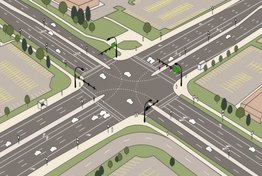Project Planning & management
The Programme comprises of four key ‘courses’:
–> Business Management & Administration
–> Banking
–> Financial Management
–> Advanced Management & Administration Theory & Practice
Summarised details of each course comprising this Honours Diploma:
BANKING
–> Banking; savings, money and loans; financial intermediaries and markets.
–> Explaining the roles and activities of banking.
–> An overview of different aspects of banking.
–> Retail banking; transferring money, lending and scoring, and other retail bank services.
–> Corporate banking: lending, and other key activities; interest rates.
–> How banks operate, liquidity and reserves.
–> Asset and liability management.
–> Bank financial statements.
–> Investment banking: services to companies and governments.
–> Investment banking: market trading activities.
–> Mutuals and Finance Houses, factoring and leasing.
–> International banking; banking across borders.
–> Banking in the UK, Europe, North and South America, Asia, Australasia, the Middle East, Africa.
–> Instruments and markets: debt and futures markets; swaps and options; foreign exchange markets.
–> Central banking and regulation Monetary policy.
BUSINESS MANAGEMENT & ADMINISTRATION
–> Capital and the financing of businesses, sources of capital, share issues.
–> Working capital, cash and funds flow; revenue, income, expenditure, overheads.
–> Business units: sole-proprietors, partnership firms, limited liability companies.
–> Board of Directors, formation, responsibilities and duties.
–> Business organisation; structure, reporting, spans of control.
–> Business environment, trading enterprises; factors in business location.
–> Planning and forecasting in business, the business plan; starting or taking over a business.
–> Budgeting and budgetary control, the master budget and sub-budgets.
–> Management of personnel: recruiting, selecting, inducting, training, controlling, remunerating.
–> Motivation, human resources; health and safety in the workplace, communication, job analysis.
–> Principles of selling, sales and marketing management, market research, sales promotion, pricing policy.
–> Office management, office organisation, set-up, equipment, data and information.
–> Production management, production methods, materials handling.
–> Credit, credit control, credit limits and bad debts; discounts: trade, quantity, others.
–> Stock and inventory control, stocktaking. Purchasing and resourcing, suppliers.
–> Financial accounting, books of account, interpretation, accounting ratios.
FINANCIAL MANAGEMENT
–> Nature and importance of capital investment decisions; resources involved.
–> Investment appraisal methods, accounting rate of return (ARR), return on capital employed (ROCE), payback period.
–> Net present value (NPV), risk in investment appraisal, calculating and using probabilities.
–> Impact of interest and inflation, premiums; considering wealth.
–> Investment in practice and reality, logical investors.
–> The cost of capital; review and control for capital expenditure projects, decision management, audit.
–> Short-term finance, gearing, factoring, discounting.
–> Sources of finance: internal, external, profits, credit control.
–> Long-term finance, the stock exchange, primary and secondary markets, stock listing.
–> Shares, share issues, debentures, small business finance, venture capital, funding, business angels, Government.
–> Managing working capital, definition, elements, scale of capital.
–> Managing stocks, stock ordering systems, MRQ, JIT, inventory models.
–> Budgeting for demand, financial ratios, debtor and credit control.
–> The working capital cycle; discounts, collection policies, settlement period.
–> Cash management and budgets, the cash cycle.
–> Policies for working capital control; balance, banking, overdrafts.
ADVANCED MANAGEMENT & ADMINISTRATION THEORY & PRACTICE
–> The evolution of management theory, principles of management.
–> The classical and early theorists; Fayol, Weber, Taylor, Mayo, scientific management, authority, discipline, modern developments.
–> Organisational theory: objectives, categories, ownership, environmental factors and interaction.
–> Open and closed systems theory.
–> Coordination, cooperation, structure, control.
–> Communication theory.
–> Organisational structures, planning, growth, development, organisation charts, systems diagrams.
–> Duties and responsibilities of executives, delegation, responsibility.
–> Mission, vision, values, MBWA.
–> Motivational theory: human relations, social psychology; self-realisation, motivation-hygiene, expectancy theory.
–> Argyis, Maslow, McGregor, Likert, Herzberg, Vroom, Handy; intrinsic and extrinsic factors.
–> Leadership theory: traits, style, contingency; theorists.
–> Building workgroups, group behaviour, norms, cohesiveness.
–> Managing change, culture, Moss Kanter, learning organisations, entrepreneurship.
–> Strategic management; Fayol, Chandler, Andrews, Ansoff, BCG, Porter, SWOT, barriers to entry, industrial competitiveness.
–> Corporate objectives, policies, business ethics, social responsibilities.





